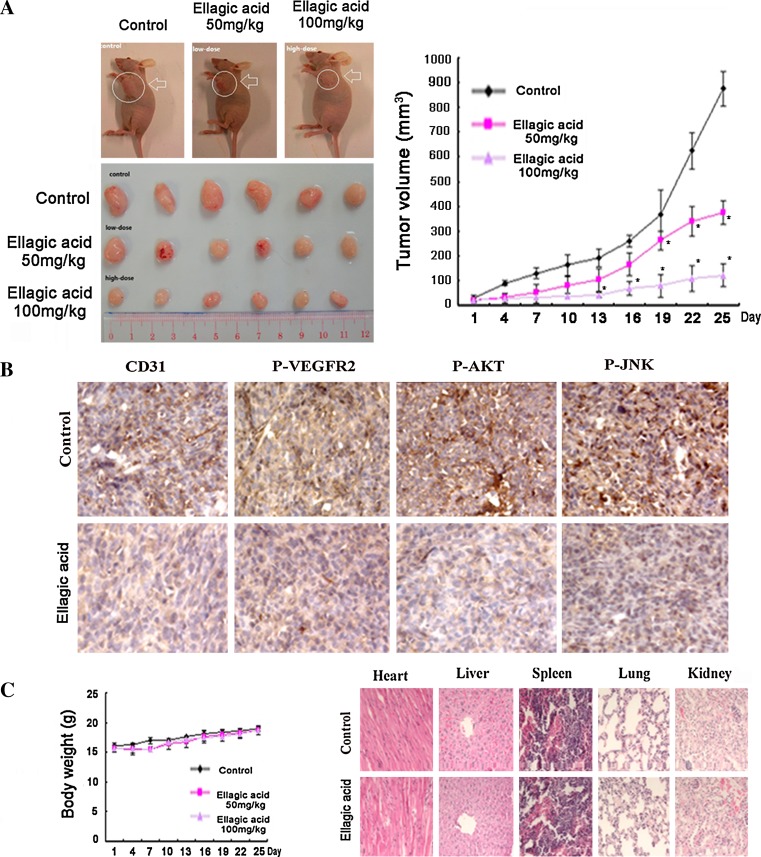Fig. 5.
Ellagic acid inhibited growth and neoangiogenesis on MDA-MB-231 breast cancer xenografts. a Nude mice bearing MDA-MB-231 tumor were treated daily with the vehicle or ellagic acid at 50 or 100 mg/kg/day by intraperitoneal administration for 25 days. Representative mice with MDA-MB-231 xenografts and tumor masses were shown. Besides, it was found that treatment with ellagic acid obviously suppressed tumor volumes compared to the vehicle control group, indicating that ellagic acid could significantly inhibit the MBA-MD-231 tumor growth in vivo (values represent means ± SD, n = 6, *P < 0.05 versus vehicle group). b Tumor tissues were prepared for immunohistochemistry detection with specific antibodies against CD31, P-VEGFR2, P-AKT, and P-JNK. It was found that ellagic acid could obviously decrease tumoral microvessel density (MVD) indexed by CD31 in comparison with vehicle treatment. Meanwhile, ellagic acid treatment could obviously attenuate expressions of P-VEGFR2, P-Akt, and P-JNK, further demonstrating that ellagic acid played an important role in suppressing angiogenesis at least in part via VEGFR-2 signaling pathways in vivo. c Ellagic acid resulted in little toxicity effects in vivo. No significant differences of body weights were detected among all the groups (upper panel). Besides, it was found that ellagic acid did not cause apparent pathological abnormalities in the normal tissues including heart, lung, liver, spleen, and kidney, suggesting that there were no significant adverse effects of ellagic acid in vivo (down panel)

